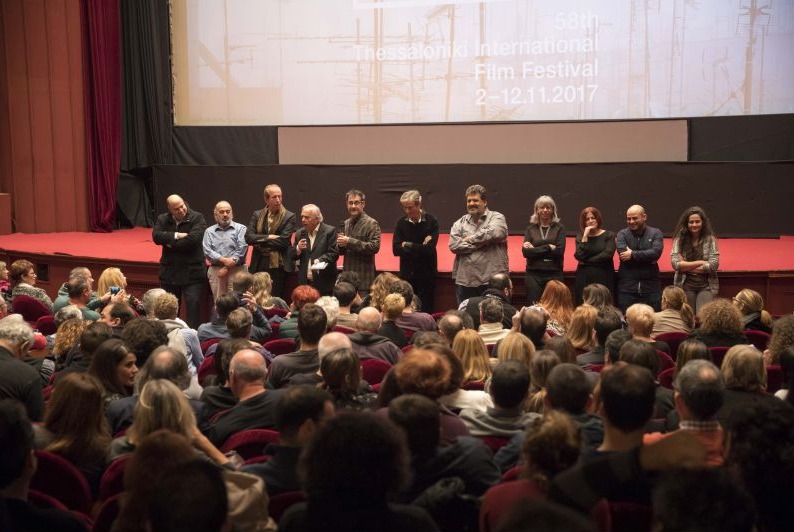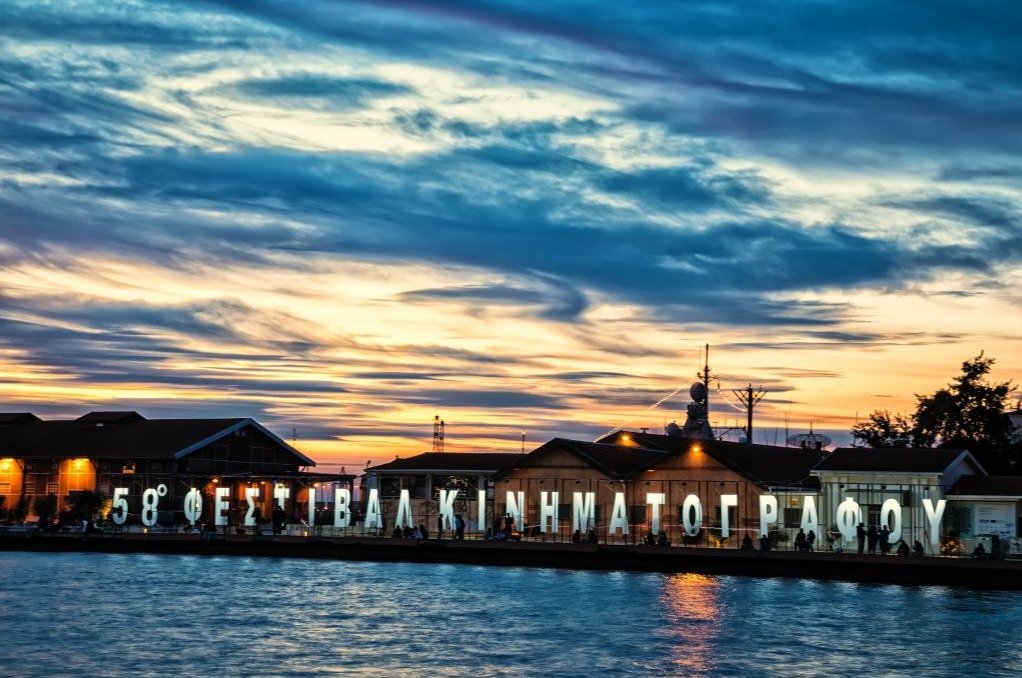Well-established film industry professionals shared valuable practical advice and guidelines with young producers and film directors in Agora/Industry Training Day, which took place in collaboration with CED Media Greece, on Tuesday November 7, 2017, at Warehouse C, as part of the 58th Thessaloniki International Film Festival.
At the first part of the action entitled “how to introduce yourself and your project”, Vicky Miha (Heretic Asterisk Film and Media Consulting) and Satu Elo, programme manager of the network EAVE (European Audiovisual Entrepreneurs) shared their experiences.
What kind of impression do I have to make?
Be professional, avoid unnecessary repetitions and try to showcase your project’s comparative advantages.
It goes without saying that you have to be perfectly fluent in English, both spoken and written.
Implement SWOT analysis (Strengths, Weaknesses, Opportunities, Threats) as a strategic planning tool, in order to detect the strengths and weaknesses of your approach. As to the latter, do not hesitate to mention them explicitly.
How can I make good impression at my project presentation?
- Avoid vagueness and generality, e.g. with phrases such as “took part in many festivals”. If you refer to previous films by the same film director which are not distributed abroad, present them with a legitimate English title. Finally, if a distinguished personality took part in the project you are presenting, be sure to mention them.
What my approach should be regarding the film budget and funding?
Create a realistic budget plan and define with accuracy all amounts of money and contingency fees included / expected.
Seek information about previous projects that were funded by the particular program (e.g. if other projects from Greece have been funded recently, the possibilities automatically decrease).
At the second part of Training Day, entitled "bridging the gender gap in European film industry”, Alessia Sonaglioni (EWA - European Women’s Audiovisual Network Head), cited statistics on gender inequalities in European film industry.
EWA network produced a two-year study across seven European countries (Austria, Croatia, Italy, France, Germany, United Kingdom, and Sweden). The most encouraging results are observed in the field of academic education, while proportions are discouraging in women working in the film industry and the funding to female directors and producers.
EWA network actions and initiatives
EWA network has been engaged to a series of actions and initiatives, with the aim of making the problem clear and known to all participants in the film industry, regardless of gender:
The creation of a Scriptwriter Residency, where female scriptwriters are offered guidance on scriptwriting.
The “EWA Mentoring Programme for Female Producers” offers a one-on-one 12-month close cooperation and interaction.
A series of awards given to female producers (Mentoring Emerging Women Producers), for works in progress, as part of various European festivals such as Dok Leipzig, WEMW Trieste, FEST’s Fest Forward section.
In the third part of Training Day, entitled “online distribution, Netflix and other cases”, it was the turn of Guillaume de Seille and Weerada Suchariktul, representatives of production company Arizona Films and the video on demand platform Filmdoo respectively.
What do I have to know about distribution today?
In present conditions, it is extremely difficult for a non-English speaking film to find distributors abroad. The potential buyer must spend a lot of money, which they will not get back even if the film sells 10,000 or 20,000 tickets. The film buyers are now counting on the royalties for television airings or the DVD release. In both cases, though, numbers are falling, especially in DVD case. The new tendency are video-on-demand platforms, where either you pay a fee for each film you choose to watch or you pay per month to have full access to the platform’s list of movies.
What do I need to pay attention to when making a decision on my film’s distribution?
You must always be fully aware of all time and legal limitations each country imposes to film distribution.
Pay attention to issues such as the attentiveness and the special care your film will treated with by the given platform. This care is anything between quality accompanying material (e.g. editorials, interviews, high-class subtitles) and drawing a comprehensive marketing strategy. Define with accuracy your audience and try to preserve the loyalties for as long as possible.
Be sure to be present in the international festival network and always keep in mind that highest offers come during the following four festivals: Cannes, Berlin, Sundance and Toronto.
In the fourth and last part of Training Day the case study of the Roman film Charleston by Andrei Cretulescu was presented, after being awarded in Agora/Industry Works in Progress section of last year’s 57th TIFF and screened this year in “Balkan survey” section.
What are the obstacles involved and what are the problems solved in a co-production?
- In general, co-production resolves problems. One of the things decided in common was hiring a sales agent for the film’s promotion. If you won’t be able to find a co-producer for more than two years, though, maybe it is wiser to quit the idea, since you will have distanced yourself largely from the project. What we certainly understood is that meeting with companies representatives, taking part in festivals’ market sections, attending to workshops, seminars etc is never a bad idea. Even if nothing concrete occurs, thoughts and ideas you can hear in there may some time help. Of course, we should make clear that we would never accept something bigger and more participatory than a triple co-production. Ultimately, it is a sine qua non making sure that the director gets the final cut privilege for the film.
















